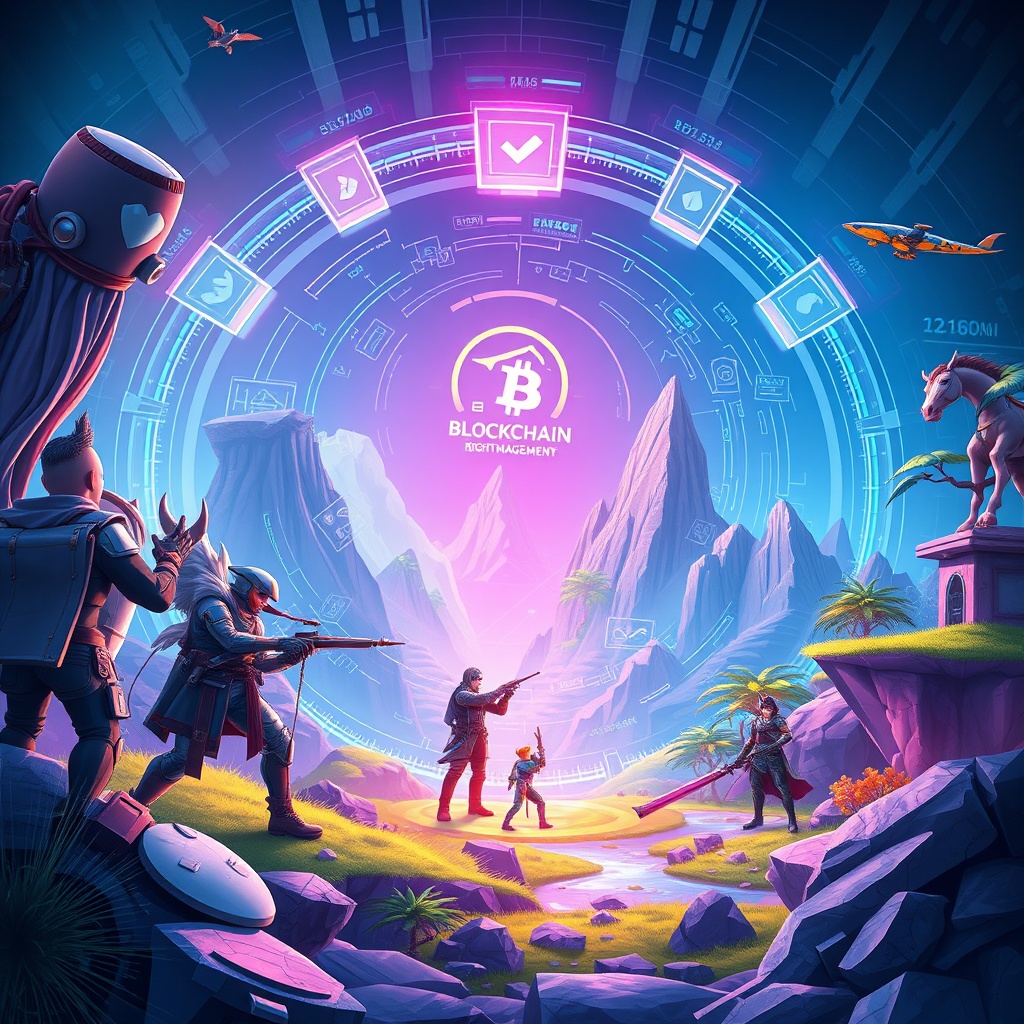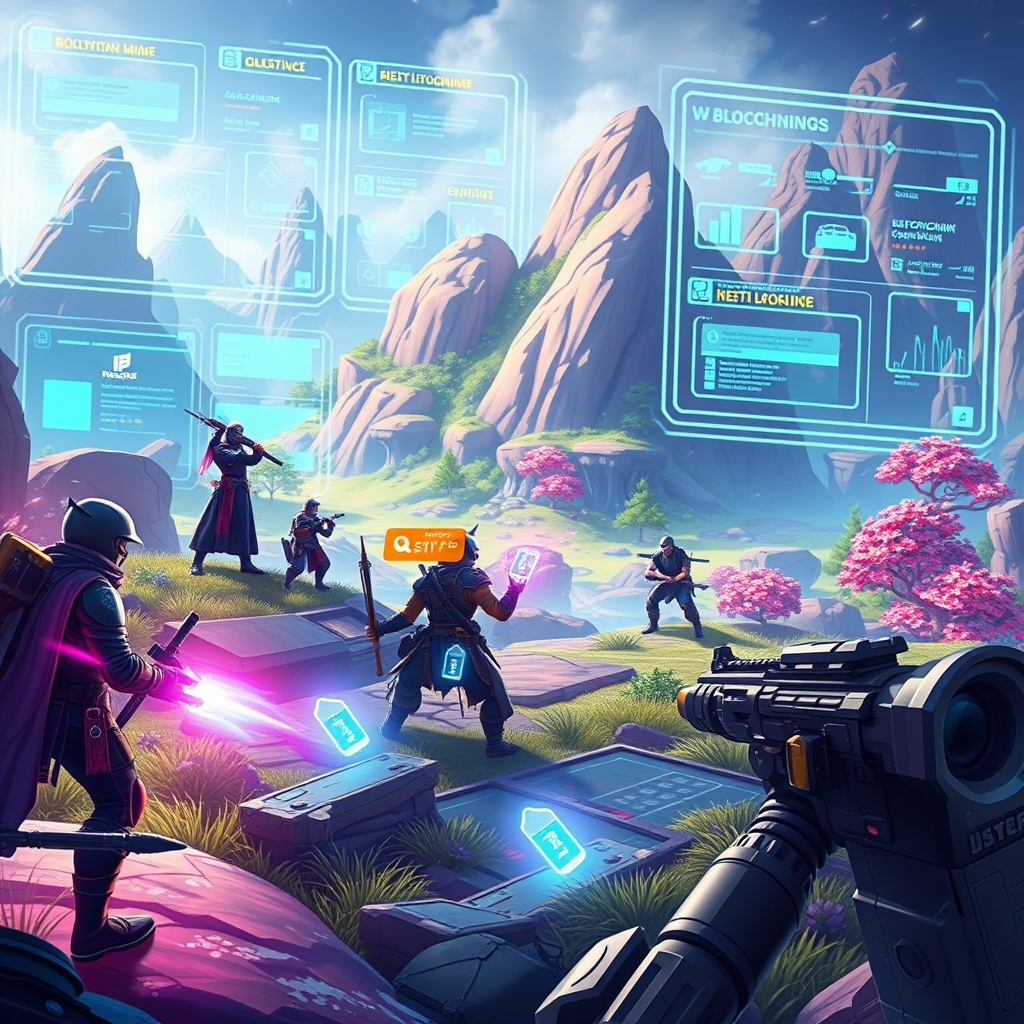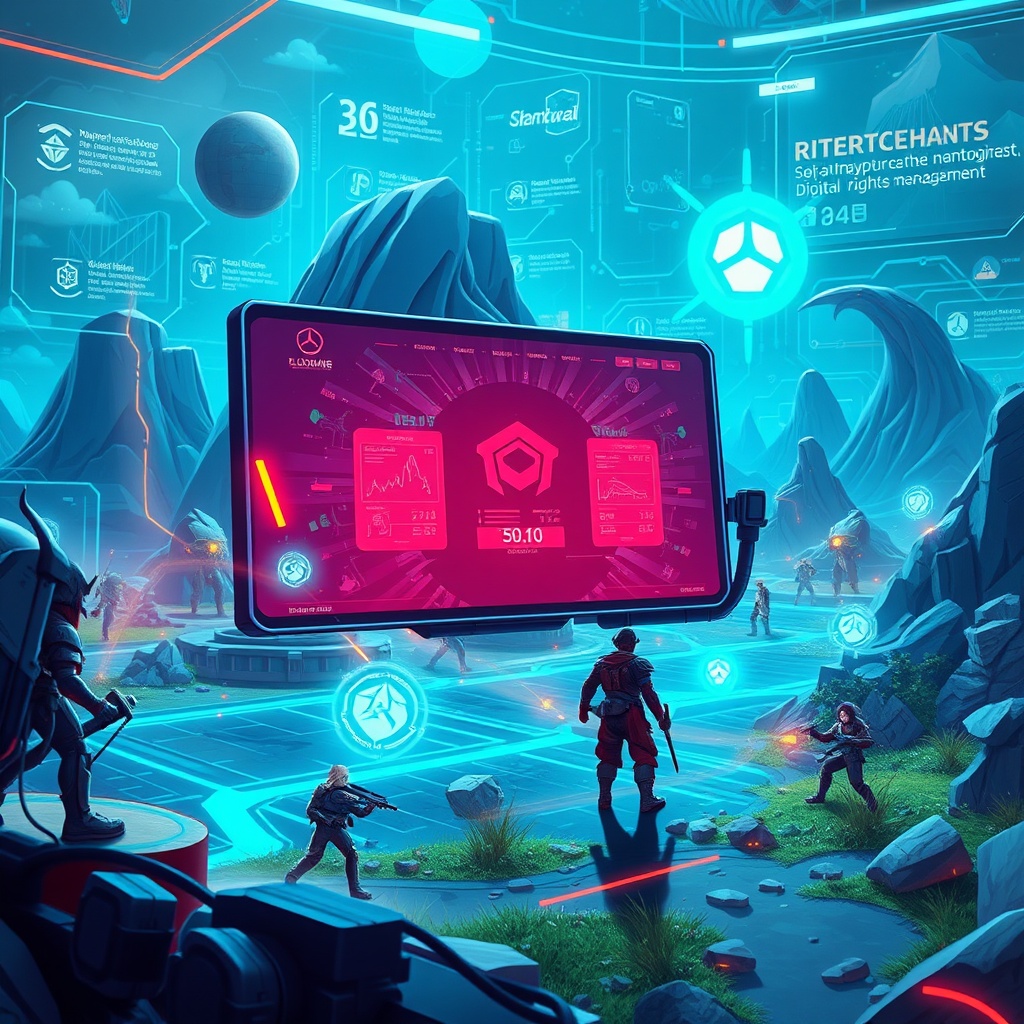The gaming industry has witnessed a seismic shift in how digital assets are managed and owned, and at the heart of this transformation lies blockchain technology. Traditionally, digital rights management (DRM) has been plagued by piracy, lack of transparency, and cumbersome licensing processes. However, blockchain offers a decentralized solution that can revolutionize the ownership, transfer, and monetization of game assets.

By utilizing blockchain, game developers and players can establish clear ownership of in-game items, skins, and other assets. Each asset can be represented as a unique non-fungible token (NFT), ensuring that ownership is transparent, verifiable, and secure. This not only protects the intellectual property of creators but also enhances the player’s experience by providing them with true ownership of their digital possessions.

One of the most compelling advantages of blockchain technology is its decentralized nature. Unlike traditional DRM systems, which rely on central authorities that control and verify ownership, blockchain enables a peer-to-peer network that facilitates direct transactions between users. This decentralization not only reduces the risk of fraud but also ensures that all transactions are recorded on an immutable ledger.
With this transparency, players can easily verify the authenticity of game assets and their respective ownership history. The implications for secondary markets are profound; players can buy, sell, or trade their assets freely without the need for intermediaries, ultimately fostering a more vibrant economy within the gaming ecosystem.
As we look to the future, the integration of blockchain in digital rights management is poised to reshape the gaming landscape. Developers are exploring innovative ways to leverage blockchain for not just ownership but also for gameplay mechanics, such as decentralized governance and community-driven development.
To encapsulate the potential of blockchain in game asset management, here are some key benefits:
- Enhanced Security: Blockchain technology offers robust security features that protect against hacking and unauthorized access.
- True Ownership: Players gain definitive ownership of their assets, which can be traded or sold without restrictions.
- Streamlined Licensing: Smart contracts can automate licensing agreements, making the process more efficient and less prone to disputes.
- Increased Revenue Streams: Developers can create new monetization models, including royalties on secondary sales.
In conclusion, as blockchain continues to evolve, its role in digital rights management for game assets will undoubtedly expand, paving the way for a more equitable and engaging gaming experience for all stakeholders involved.


















